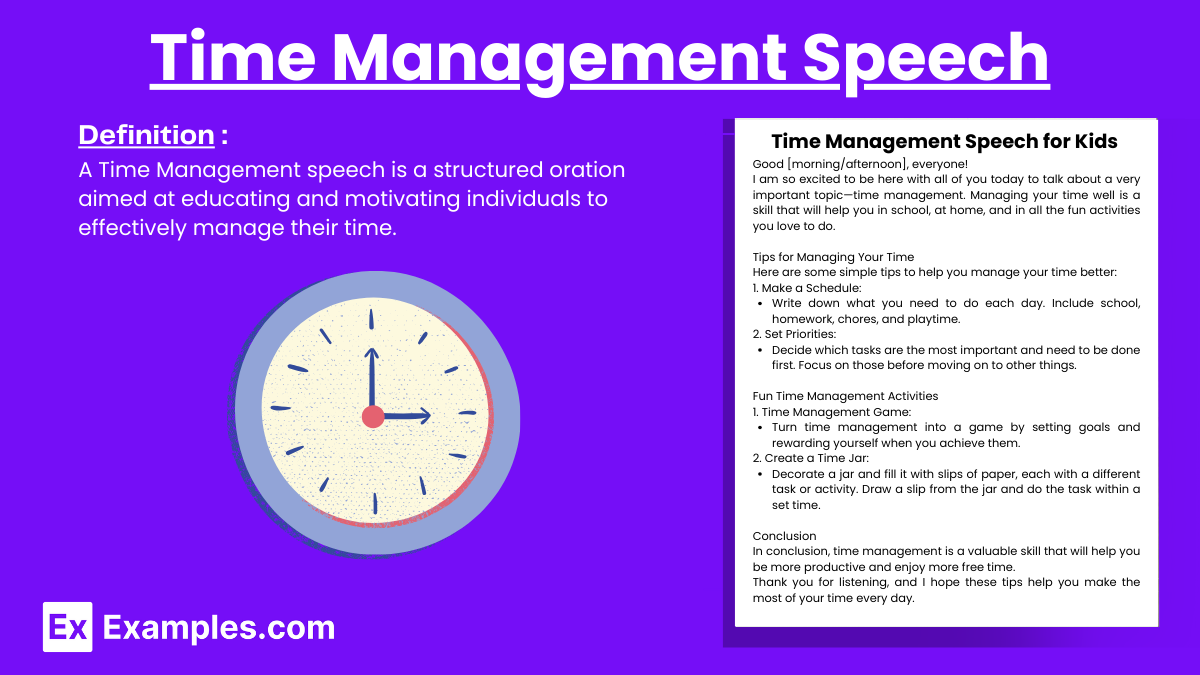22+ Time Management Speech Examples
A Time Management Speech is a structured oration aimed at educating and motivating individuals to effectively manage their time. The goal of the speech is to provide the audience with strategies, techniques, and insights on how to prioritize tasks, avoid procrastination, and increase productivity. This type of speech is often delivered in educational settings, corporate environments, or personal development workshops.
What is Time Management Speech?
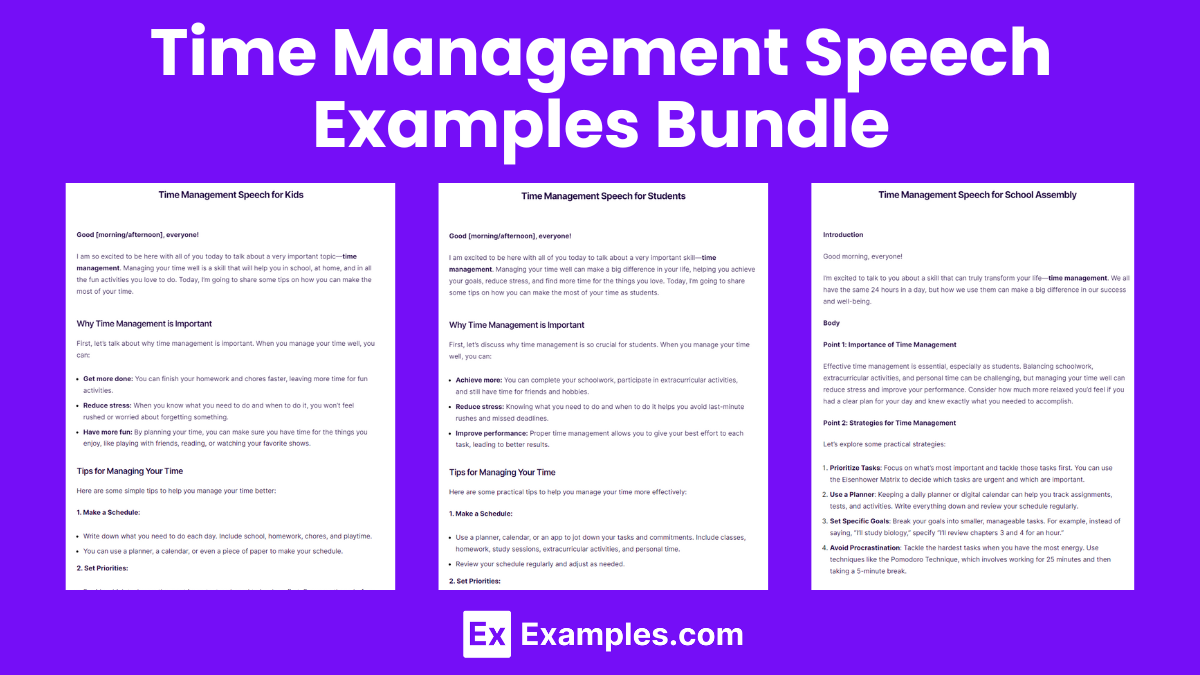
Time Management Speech Bundle Download
Time Management Speech Format
1. Introduction
Greeting: Welcome the audience.
Hook: Use a quote, statistic, or anecdote to grab attention.
Thesis: State the purpose of the speech and the importance of time management.
2. Body
Main Point 1: Importance of Time Management
Discuss why managing time effectively is crucial.
Provide examples or stories to illustrate.
Main Point 2: Strategies for Time Management
Introduce practical techniques (e.g., prioritizing tasks, using planners).
Explain each strategy with clear examples.
Main Point 3: Benefits of Good Time Management
Describe the positive outcomes (e.g., reduced stress, increased productivity).
Share success stories or personal experiences.
3. Conclusion
Time Management Speech Example
Short Time Management Speech Example
Time Management Speech for Kids
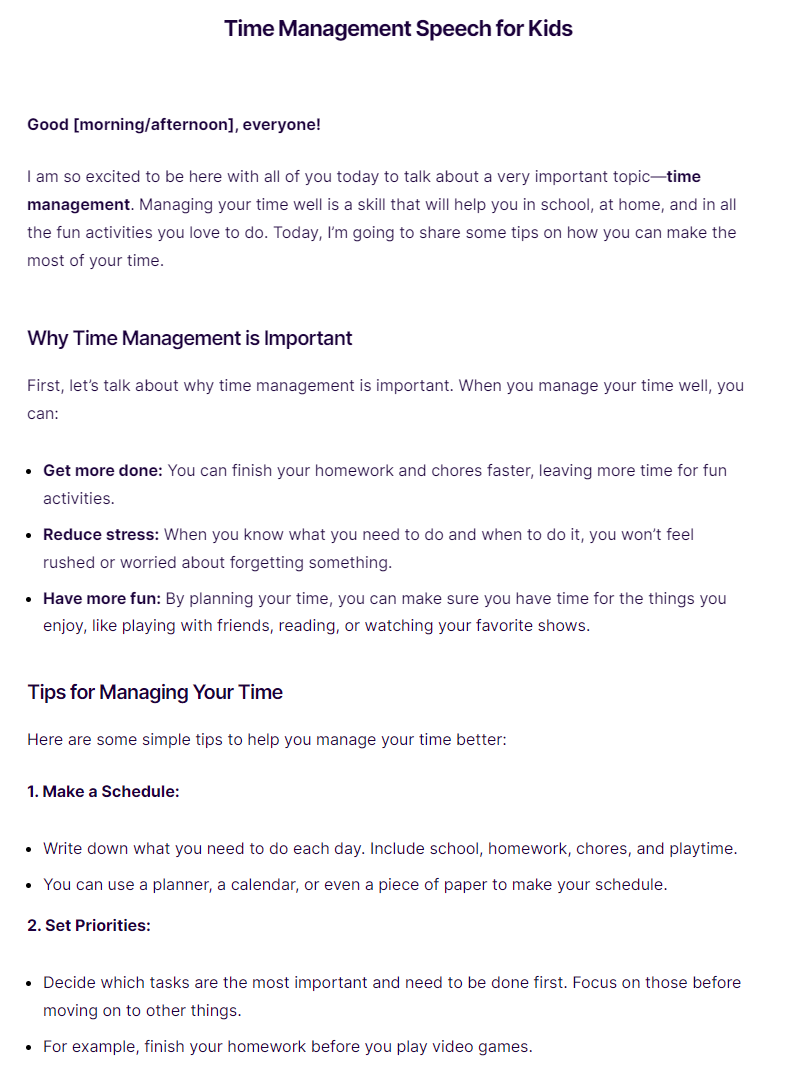
Time Management Speech for Students
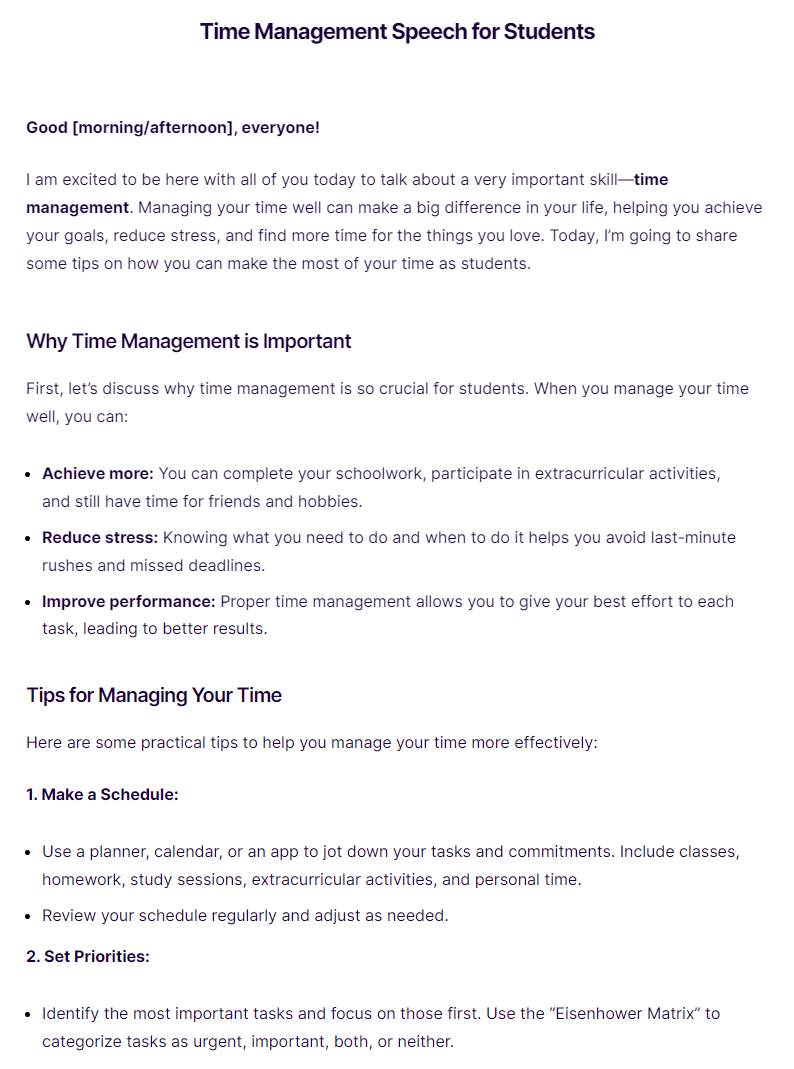
Time Management Speech for School Assembly
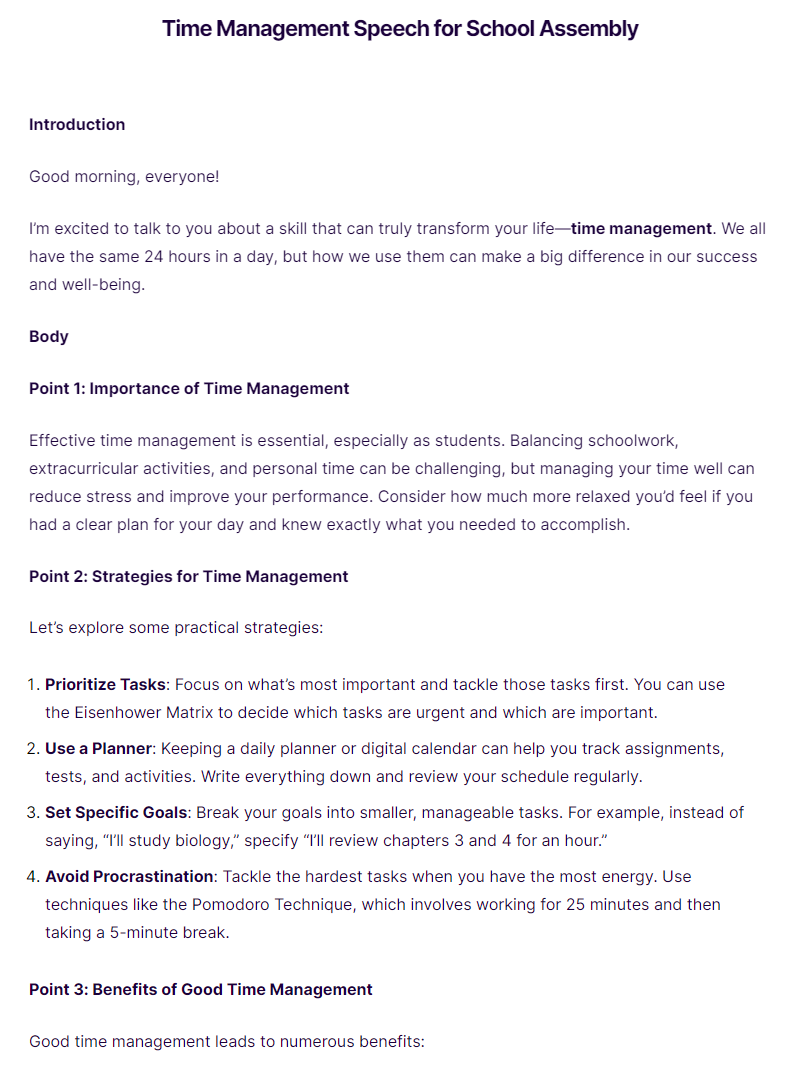
More Time Management Speech Topics
- Time Management Speech for 1 Minute
- Time Management Speech for 2 Minutes
- Time Management Speech for 3 Minutes
- Time Management Speech for 5 Minutes
- Easy Time Management Speech
- Time Management Speech for Employees
- Time Management Speech for High School Students
- Time Management Speech for College Students
- Time Management Speech for Professionals
- Time Management Speech for Teachers
- Time Management Speech for Entrepreneurs
- Time Management Speech for Young Adults
- Time Management Speech for Athletes
- Time Management Speech for Managers
- Time Management Speech for Artists
- Time Management Speech for Volunteers
- Time Management Speech for Teenagers
How to Write Time Management Speech
1. Introduction
Greeting: Welcome the audience.
Hook: Use a quote, question, or anecdote to grab attention.
Thesis: State the purpose of your speech and highlight the importance of time management.
2. Body
Point 1: Importance of Time Management
Explain why managing time effectively is crucial.
Use examples to illustrate the benefits.
Point 2: Strategies for Time Management
Discuss practical techniques (e.g., prioritizing tasks, using planners).
Provide specific examples and tips.
Point 3: Benefits of Good Time Management
Describe positive outcomes (e.g., reduced stress, increased productivity).
Share personal experiences or success stories.
3. Conclusion
Summarize Key Points: Recap the main ideas.
Reinforce Message: Emphasize the importance of applying time management strategies.
Call to Action: Encourage the audience to implement the strategies.
Memorable Closing: End with a powerful quote or inspiring note.
Tips to Deliver Time Management Speech
1. Know Your Audience
- Understand their needs and interests.
- Tailor your message to be relevant to them.
2. Start Strong
- Begin with a captivating hook, such as a quote or question.
- Clearly state the purpose of your speech.
3. Be Clear and Concise
- Focus on key points.
- Avoid unnecessary details.
4. Use Engaging Techniques
- Share relatable stories or examples.
- Ask rhetorical questions to keep the audience engaged.
5. Incorporate Visual Aids
- Use slides or props to highlight key points.
- Ensure visuals are simple and easy to understand.
6. Practice Your Delivery
- Rehearse multiple times.
- Maintain good posture and eye contact.
7. Manage Your Time
- Stick to the allotted time for your speech.
- Keep an eye on the clock to ensure you cover all points.
8. End Strong
- Summarize key points.
- Leave the audience with a memorable takeaway.
Why is time management important?
Effective time management reduces stress, increases productivity, and helps achieve goals more efficiently.
How can I improve my time management skills?
Prioritize tasks, set goals, use a planner, avoid distractions, and take regular breaks to improve time management skills.
What are the benefits of good time management?
Good time management leads to increased productivity, reduced stress, improved work-life balance, and better goal achievement.
What is the Pomodoro Technique?
The Pomodoro Technique involves working for 25 minutes, then taking a 5-minute break, to improve focus and productivity.
How do I prioritize tasks effectively?
Use methods like the Eisenhower Matrix, which categorizes tasks by urgency and importance, to prioritize effectively.
What role do deadlines play in time management?
Deadlines create a sense of urgency and help prioritize tasks, ensuring timely completion of projects.
How can time management reduce stress?
By organizing tasks and setting realistic goals, time management reduces the feeling of being overwhelmed and lowers stress levels.
What tools can help with time management?
Tools like planners, calendars, to-do lists, and time-tracking apps can help manage time effectively.
How do I avoid procrastination?
Break tasks into smaller steps, set deadlines, remove distractions, and use techniques like the Pomodoro Technique to avoid procrastination.
What is the Eisenhower Matrix?
The Eisenhower Matrix prioritizes tasks by urgency and importance, helping you focus on what truly matters.



